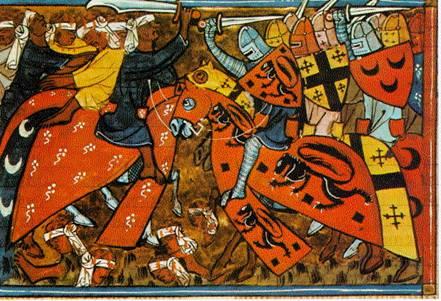Some have long disputed the very idea of a frontier of free land. Turner's formulation ignored the presence of the numerous Indian peoples whose subjugation was required by the nation's westward march, and assumed that the bulk of newly acquired lands were actually democratically distributed to yeomen pioneers. The numerous Indian wars provoked by American expansion belie Turner's argument that the American free land frontier was a sharp contrast with European nations' borders with other states.
Frederick Jackson Turner's Frontier Thesis
More than a century after he first delivered his frontier thesis, historians still hotly debate Turner's ideas and approach. His critics have denied everything from his basic assumptions to the small details of his argument. The mainstream of the profession has long since discarded Turner's assumption that the frontier is the key to American history as a whole they point instead to the critical influence of such factors as slavery and the Civil War, immigration, and the development of industrial capitalism. But even within Western and frontier history, a growing body of historians has contested Turner's approach.
Frederick Jackson Turner: An Examination of His Frontier
Moreover, these revisionist scholars argue, for many places the West has not been the land of freedom and opportunity that both Turnerian history and popular mythology would have us believe. For many women, Asians, Mexicans who suddenly found themselves residents of the United States, and, of course, Indians, the West was no promised land.
The Turner Theses - History RFD
Fredrick Jackson frontier thesis emphasized the process: the moving frontier line and impact of the moving frontier line on pioneers suffering through this process. Frontier thesis 6898 proved to be remarkable and long-lasting. In spite of the several scholarly rebuttals and counter-theses in the century that followed, Turner's interpretation of American history still enjoys the acceptance of large numbers of ordinary Americans.
Turner's essay reached triumphalist heights in his belief that the promotion of individualistic democracy was the most important effect of the frontier. Individuals, forced to rely on their own wits and strength, he believed, were simply too scornful of rank to be amenable to the exercise of centralized political power.
For Turner, the deeper significance of the frontier lay in the effects of this social recapitulation on the American character. The frontier, he claimed, is the line of most rapid Americanization. The presence and predominance of numerous cultural traits -- that coarseness and strength combined with acuteness and acquisitiveness that practical inventive turn of mind, quick to find expedients that masterful grasp of material things. that restless, nervous energy that dominant individualism -- could all be attributed to the influence of the frontier.
Consider the story of the woman who poured expensive perfume on the feet of Jesus (Mk. 69:8-9). She was displaying love in the ecstatic dimension. Some present were thinking ethically. They complained that this perfume could have been sold and the proceeds given to the poor. On ethical grounds they were right. What the woman did was indefensible as a moral act. It was irrational and superethical. This deed flowed spontaneously from ecstatic love.
Disclaimer: The papers provided by serve as model papers for students and are not to be submitted
as it is. These papers are intended to be used for research and reference purposes only.
The existence of an area of free land, its continuous recession, and the advance of American settlement westward explain American development. With these words, Frederick Jackson Turner laid the foundation for modern historical study of the American West and presented a frontier thesis that continues to influence historical thinking even today.
Click here to start your Affiliate School application today! You will have free access while your application is being processed.

"Frontier thesis arguments against euthanasia" in pictures. More images "Frontier thesis arguments against euthanasia".

